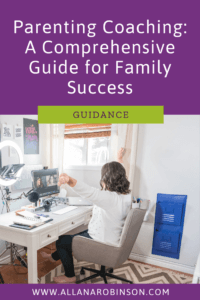BITING!
This is so triggering for parents and I get it. Nobody wants to have the kid who is hurting other’s kids.
Biting in particular feels really intimately violent- like it feels worse than just hitting or pushing because it involves bodily fluids and often broken skin.
We also know that biting is developmentally appropriate for toddlers so how can we stop it while also honouring their developmental stage?
Why do kids bite?
Kids bite for 3 reasons: lack of impulse and emotional control, dysregulation, and lack of perspective-taking. All of which are completely developmentally based.
Dysregulation
Dysregulation is a state of being on high arousal.
You’re very alert.
Basically, your brain perceives that your body doesn’t have enough energy available to it to protect itself, so it shuts off the logical, rational, knowledge-filled area of our brain- the neocortex.
The neocortex is where executive functions, language, knowledge and reason all exist in our brain and all of that stuff is cool, but it doesn’t keep us alive.
It’s not necessary for life nd it only starts developing at birth, in order to fit out big heads out of a relatively small hole something I’m sure most of us are intimately familiar with our head needs to squish.
This why babies have soft spots so that our head can squish but if our brain was all wired up and working, it would get damaged when it squished.
Ready to be a wizard with words during your kiddo's next tantrum tornado? Sign up for our 'Parenting Power Phrases' mini-course! This magic scroll of wisdom will equip you with the perfect phrases to tame those baffling behaviors from your toddler, preschooler, or kindergartener. Be prepared, be confident, and ace the next curveball your little one throws your way!
Mother nature in her infinite wisdom made it so that it’s not until we’re born that we get this rush of hormones and that starts our neocortical development.
For an 18 month old, their neocortex is still pretty weak on the whole. It’s fresh. Our limbic system, on the other hand, it comes out all wired up and ready to roll.
Our limbic system is responsible for our emotions, our memories, and our safety. It’s where our security system lives and a neat part of that security system is something called limbic breaks.
Basically, the limbic system monitors our body’s ability to fight, flee, or freeze based on the amount of glucose we have available.
If the limbic system detects that we don’t have enough glucose, it stops allowing the neocortex access to glucose and oxygenated blood. Basically it gives it just enough to keep it alive, but it hoards all the rest of it for itself- because who knows?
A lion could jump out of the bushes at any moment!
It ‘throws the breaks’ on the neocortex so it can’t function and I’m sure you’ve experienced this when you just can’t focus or think rationally, you’re really emotional, and I dunno about your, but often when I’m in that state I’m AWARE of it, but I just can’t get my brain to engage and think. It also means that when we’re in that state we’re highly reactive.
We’re ready to run away, fight to the death, or freeze at the drop of hat. And that’s what happens when our kids bite they’re dysregulated, meaning they’re low on available energy, so they’re primed for an attack.
Which, to a toddler, can mean pretty much anything they aren’t expecting.
When a child grabs a toy, or gets in their way, or you deny them something they want they’re going to react on instinct and biting is a fight instinct, right?
ATTACK THEM BEFORE THEY CAN ATTACK ME!
This is why you can’t tell a toddler not to bite and expect it to have any impact whatsoever because as far as they’re concerned, it worked.
It kept them safe and neutralized the threat and since they’re dysregulated they don’t have access to their language.
They aren’t processing what you’re saying. Instead, we need to focus on teaching our toddlers to regulate.
With toddlers this generally looks like redirection and boundaries and facilitation.
We’re going to give them something they can bite. We’re going to get ahead of the problem and offer them things to bite and other regulating activities proactively so they aren’t getting so dysregulated.
Impulse Control and Emotional Control
Both of these are executive functions, and executive functions only start developing around age 2.
The average age that biting peaks is 18 months old. They don’t have access to those skills at all because those skills live in the neocortex.
If they did- even if your child tends to be on the front end of the developmental curve and they’re just starting to sprout.
They’re dysregulated!
They don’t have access to them anyways!
As we get older and these skills are fostered, they get stronger which means they take less energy to use- which means that we can access them and use them more often!
If you’ve got a biter, chances are that you want to start fostering their impulse control and emotional control skills and we do this by getting them to practice these skills while they’re playing.
We put them in play situations where they have to control their impulses like waiting to hit the button in Hungry Hippos or waiting to pull the drain in the bath tub.
We put them in play situations where they have to identify the emotional expression of themselves and others.
Often we do this through books and dramatic play.
The more we foster those skills, the longer they’ll have access to them- so that even if they’re beginning to become dysregulated, they’ll still be able to access them!
Again, this requires a certain amount of time for development to happen but most kids, if these skills are actively fostered from about 18 months are able to see the improvement by 2 and a half.
This is the ultimate, long-term solution.
Lack of Perspective
18 month olds, 2 year olds they have very limited perspective taking. They cannot put themselves in other people’s shoes.
They’re egocentric!
It doesn’t even occur to them that biting someone might hurt them and that’s not a nice thing to do.
They’re just trying to keep themselves safe, and fuck anyone who gets in their way.
They can display empathy after the fact, but in the moment they’re extremely unapologetic about how their actions impact others and so often I see parents taking this tact where they’re trying to explain to a toddler why what they did was mean.
They’re trying to use prosocial pressure to deter them from biting, and you might as well go find a solid brick wall and give it a lesson in quantum physics cause you’d be more productive.
Their brain cannot conceive of someone else’s perspective that doesn’t develop until around age 5.
It takes us back to that emotional control peice of identifying emotional expressions in kind of a rote way.
Look at your sister, she has tears in her eyes and she’s clutching her arm.
I think you hurt her with your teeth and then rolling over into a logical consequence process to teach how to make amends. This isn’t going to deter them, but it will teach them in an almost mechanical way how to behave when they unintentionally hurt someone.
When we approach biting in this way we generally see a huge reduction pretty quickly, because the focus is not on the behaviour and convincing the child to use their willpower or benevolence to stop biting.
Rather on actually solving the developmental issues that are causing it in the first place.
Now, as simple as it sounds, how this actually plays out is going to look very different in practice for every family.
It’s going to depend heavily on what the child finds regulating beyond biting, it’s going to depend on the environment you have to work on those skills in.
This is something we help you figure out in ParentAbility we help you develop a regulation cycle, we help you pick games and activities that you can do with your child to build their skills, and we support you in teaching them to think critically after the fact so that they’re accountable for their actions, as unintentional as it may be, and show empathy to the child they hurt.
If that’s something you’re interested in, we’d like to invite you to take our free class where we talk about all of this more in-depth and if you’re ready to get started you’ll have the opportunity to join ParentAbility afterwards!













